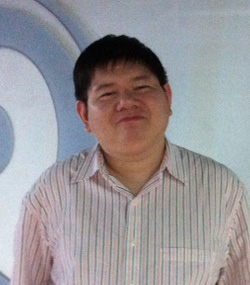SUMMARY
This is AI generated summarization, which may have errors. For context, always refer to the full article.
I went to the 9th Media Nation Summit in Tagaytay with the Rappler contingent, and the time I spent there was perhaps the most startling experience I had in terms of depressing anecdotes and enlightening discussion.
As Rappler editor at large Marites Vitug wrote recently, it’s been suggested that as many as 9 out of 10 journalists are corrupt, with the extent of their corruption varying in degrees.
The problem appears to be something caused by a number of factors, such as vested corporate interests, a lack of editorial independence, the need for money to survive, a desire for acceptance among corrupt peers, or simply not knowing whether an act is wrong because it has become common practice.
Journalism and corruption
I am not a journalist. Well, maybe I am… I cannot be quite sure.
Perhaps it would be more appropriate to say the history of my career in writing has resulted in a very strange shift in the nature of my ability to cover news.
My professional career began back in 2006. I wrote news about video games and technology for an enthusiast website.
This particular starting point lends itself to a bit of discourse because the video game community tends to have a very vocal audience. Combine that with the video game industry and the public relations firms backing them, and you have a large gray area with regard to promotions and reviews.
Moreover, the perception of corruption is difficult to define and stamp out, primarily because some people in the games media feel they have done nothing questionable.
To cite a case of this, a recent issue in UK games journalism presented itself when Robert Florence, writing for Eurogamer, wrote about the perception of corruption and how some journalists tweeted a promotional hashtag from a game company to be in the running to win a PlayStation 3.
Florence’s post was questioned by some, and eventually one of the journalists called out in Florence’s piece threatened to sue Eurogamer for libel.
Eurogamer edited the review, people reacted to criticism by hiding or lashing out, and a veritable storm of public condemnation occurred online against a number of people and organizations. This happened quickly and was summarized well by John Walker.
Moving back to the point, the reason why I mentioned this is because when the perception of corruption appears, it can taint every news outlet following the same beat. A short time after the above happened I was also accused of being on the take.
The simple reason was that I wrote an opinion column about my excitement for a game’s reboot based on the information provided by various sources.
The idea was unwarranted at the time, but after Media Nation, I can’t help but wonder how many people are called out on this, whether duly or unduly.
The struggle for journalism
I do not have a thick skin. I am also neurotic to a fault about issues pertaining to how I present myself, especially with regard to my writing. When confronted with an accusation or with criticism of my news or opinion columns, I react with a great sense of unease.
I need that criticism more than ever now.
I am certain many journalists will not like my saying that being called a journalist lends itself to certain perks and a certain sense of haughtiness. It gives us access to people and places we never thought we could see, and the term itself differentiates us from those who simply play at writing. By being called a journalist, I distinguish myself.
It is human to want to feel better than we truly are, to be aggressive against attacks against our person, and to take pride in what we do. It does not, however, mean we truly are better than others.
I want to be criticized for my opinions and my representations of entities in my writing. This is not because I can adequately defend myself, but because it makes me accountable for the things I say and the facts I write, and if new information comes to light, I must work to ensure my writing remains accurate. This is because journalists work to inform the public.
This isn’t to say I will accept everyone’s opinion. As Harlan Ellison once said,
“Everybody has opinions: I have them, you have them. And we are all told from the moment we open our eyes, that everyone is entitled to his or her opinion. Well, that’s horsepuckey, of course. We are not entitled to our opinions; we are entitled to our informed opinions. Without research, without background, without understanding, it’s nothing.”
It is criticism stemming from informed opinions I will look forward to reading, responding to and working on. The criticism has the power to change my writing, to inspire informed debate, and to create worthwhile changes in the thinking of others.
It is social change at the micro level, and for it to work, writers and bloggers, journalists and media outlets, they must want to change for the better.
The struggle for journalism is for its practitioners to want to struggle to be journalists every day.
Perhaps it is best for me to say I am not a journalist. But I can be, if I work at it every day. I’m happy for the challenge that awaits, and I hope others are willing to say the same about their writing. – Rappler.com
Add a comment
How does this make you feel?

There are no comments yet. Add your comment to start the conversation.